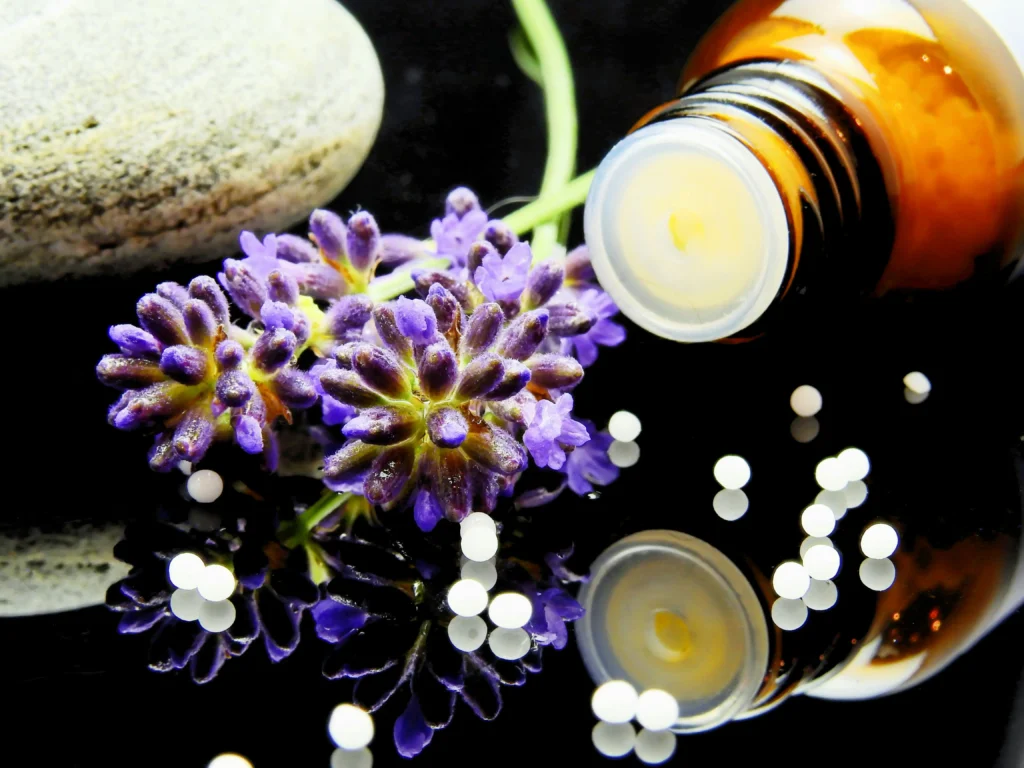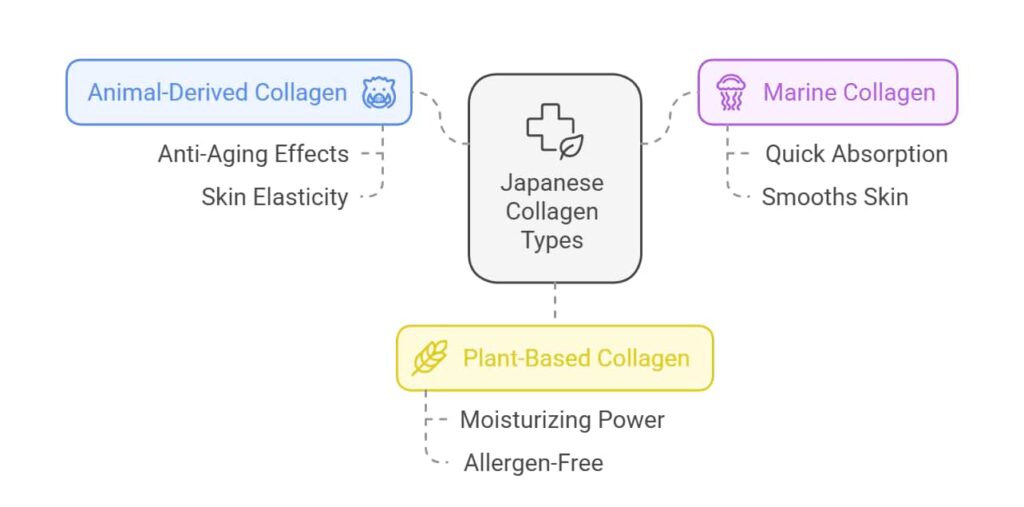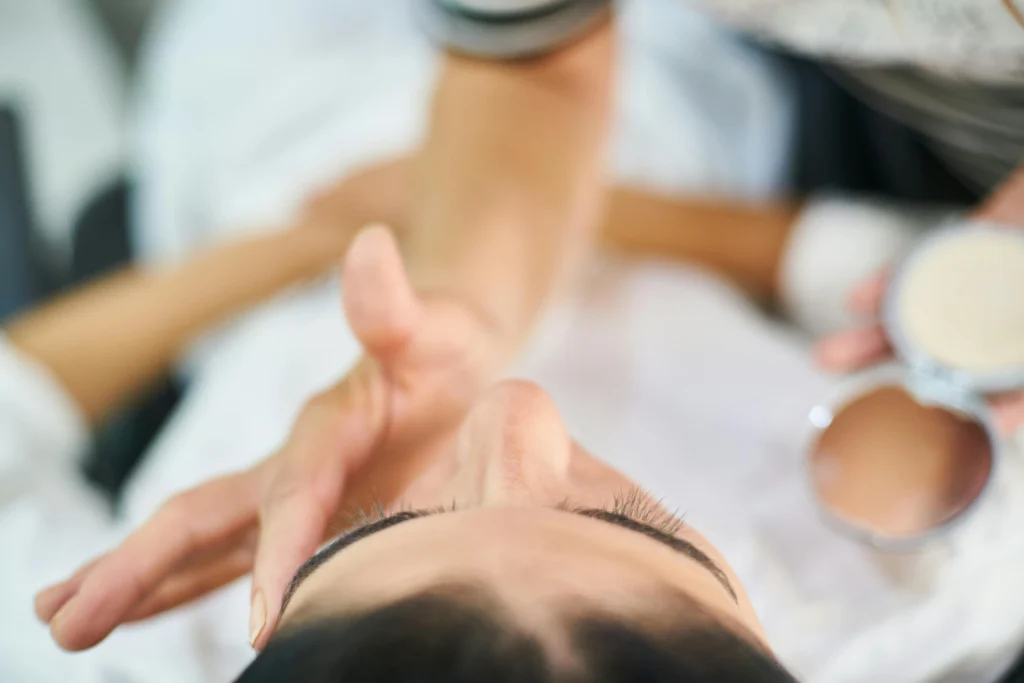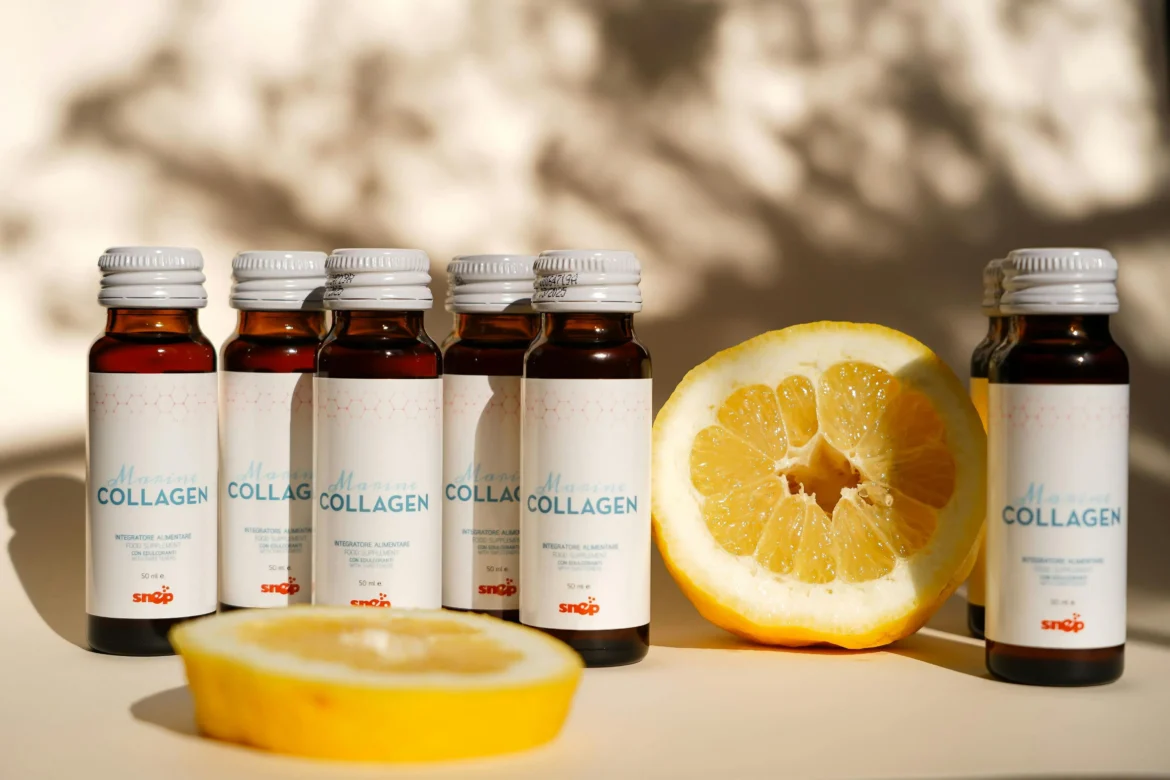We’ve come to see japanese collagen as the secret weapon for youthful skin! Japanese collagen is a fibrous protein made of amino acids, accounting for about 30% of the body’s total proteins.
One of its standout features is its triple-helix shape, which makes it both strong and flexible.
It’s located throughout our bodies, especially in the dermis layer of the skin, and helps keep our skin looking firm and fresh. Honestly, when we first heard it was that important, we went deep into using it. Now we bring all the knowledge we earned, directly to you!

1. Understanding Japanese Collagen: The Basics
We learned that collagen not only supports skin elasticity and moisture but also plays roles in bones, joints, muscles, and even internal organs.
About 70% of the dermis is formed by collagen, which gives our skin a firm, plump look.
As we age—especially in our mid-30s—our natural collagen declines. We noticed our own skin getting a bit rough and dull in that period, so we started exploring ways to boost collagen levels.
Whether it’s through japanese skin care or dietary supplements, we wanted to keep our skin from drying out and losing its glow.

2. Different Types of Japanese Collagen
2.1 Animal-Derived Collagen
Back when we first tried animal-derived collagen, we found it typically comes from the skin or bones of cows and pigs. It’s known for its anti-aging effects, boosting our skin’s elasticity.
Because it can have a larger molecular size, it’s usually broken down (hydrolyzed) for better absorption in creams and supplements. We personally enjoyed it in a thick facial cream—it felt rich and soothing on days when our skin was extra dry.
2.2 Marine Collagen
Our next experiment was with marine collagen, extracted from fish skin and scales. We read it has a smaller molecular weight and quicker absorption.
True enough, we sensed subtle improvements in dryness after just a week of consistent use—our skin felt smoother. Another plus is that fish-derived collagen can be gentle on sensitive skin, so we told our friends who often struggle with redness to try it. They loved it, too!
2.3 Plant-Based Collagen
For our vegan friend group, plant-based collagen made from soy or corn sources was a perfect option. Although the anti-aging effect might be milder, the high moisturizing power was impressive.
We noticed fewer tight patches on our cheeks during winter, which was a big win. It’s also a good solution for anyone worried about potential allergens in animal or fish-based collagen.

3. Using Japanese Collagen for All Skin Types
3.1 Collagen in Cosmetics
We’ve often used serums and lotions containing hydrolyzed collagen or atelocollagen.
They feel wonderfully soft on the face and help keep our skin from drying out. We saw that combining collagen with other beauty ingredients can create a powerful moisture seal.
It’s especially handy for preventing fine lines and sagging skin that usually appear as we get older.
3.2 Collagen as a Supplement
Beyond japanese skin care products, we also take collagen supplements to nourish ourselves from the inside out.
Once we hit 30, we really noticed the difference in our skin after adding collagen drinks to our routine.
Our joints felt better, too, which was a pleasant surprise. Since most supplements use animal or marine collagen in an easily digestible form, daily use can yield steady results.
We also saw that combining collagen with vitamin C can amplify collagen synthesis in the body. Nice duo!
3.3 Power Pairings: Hyaluronic Acid & Vitamin C
Hyaluronic Acid: We found a serum containing both collagen and hyaluronic acid worked wonders on our dryness. While collagen supplies elasticity, hyaluronic acid locks in moisture.
This pair truly revived our skin’s texture and helped smooth out tiny lines around our eyes and mouth.
Vitamin C: This powerhouse antioxidant is perfect for promoting collagen production. We switched to a supplement that combines both, and we noticed brighter, firmer skin over a couple of months.
Vitamin C also shields our skin from free radicals, so we feel more confident about our overall skin health.

4. Results and Final Thoughts
4.1 Before and After Insights
Many people we know say visible improvements appear around the 4 to 8-week mark. Personally, it took a few weeks for us to see subtle changes—especially when we used marine collagen.
The biggest transformations showed up after about three months of consistent use.
Our skin looked brighter, and we noticed fewer dry patches. If you’re aiming to tackle wrinkles, we recommend sticking with it for a while before judging the results.
4.2 Our Personal Takeaway
After experimenting with various collagen types, we’re convinced there’s a suitable option for everyone.
Marine collagen for quick absorption, animal-based collagen for intense anti-aging, or plant-based collagen for a cruelty-free approach, each can significantly support skin health.
Our advice? Find a product that fits your lifestyle and skin type, give it time, and pay attention to how your skin responds. Consistency is key.
If you’re ready to boost your skin from the inside out, consider adding collagen to your daily routine. We believe you’ll soon notice smoother, more radiant skin that feels as good as it looks!
FAQ
How long does it take to see results using Japanese collagen?
We usually see slight improvements within a month, but deeper improvements in elasticity can take up to two or three skin turnover cycles (roughly 8–12 weeks). Everyone’s body responds differently, but patience and consistency typically pay off!
Does Japanese collagen have any side effects?
Collagen is generally safe, but if you have allergies—especially to fish or certain animals—be cautious. We recommend testing new products on a small patch of skin first. Large oral doses might cause stomach discomfort, so it’s best to stick to the recommended serving.
Can I combine japanese collagen with other beauty ingredients?
Absolutely! We love pairing collagen with hyaluronic acid and vitamin C because it can enhance moisturizing effects and boost collagen production. It’s like a triple-threat for promoting smoother, firmer skin.
Which collagen type is best for me?
If we had to choose, we’d pick based on lifestyle and preference. Marine collagen tends to absorb quickly and is gentle on sensitive skin, while animal-derived collagen feels richer and is often found in high-intensity anti-aging products. If you’re vegan or vegetarian, plant-based collagen is a great option to explore.
Should I use japanese creams or take japanese supplements too?
We’ve seen great results both ways! Creams and serums help lock moisture into our skin externally, while oral supplements work from the inside out. Some of us like to do both to cover all bases, but you can experiment and see which approach suits your routine and comfort level.
Table of Contents
